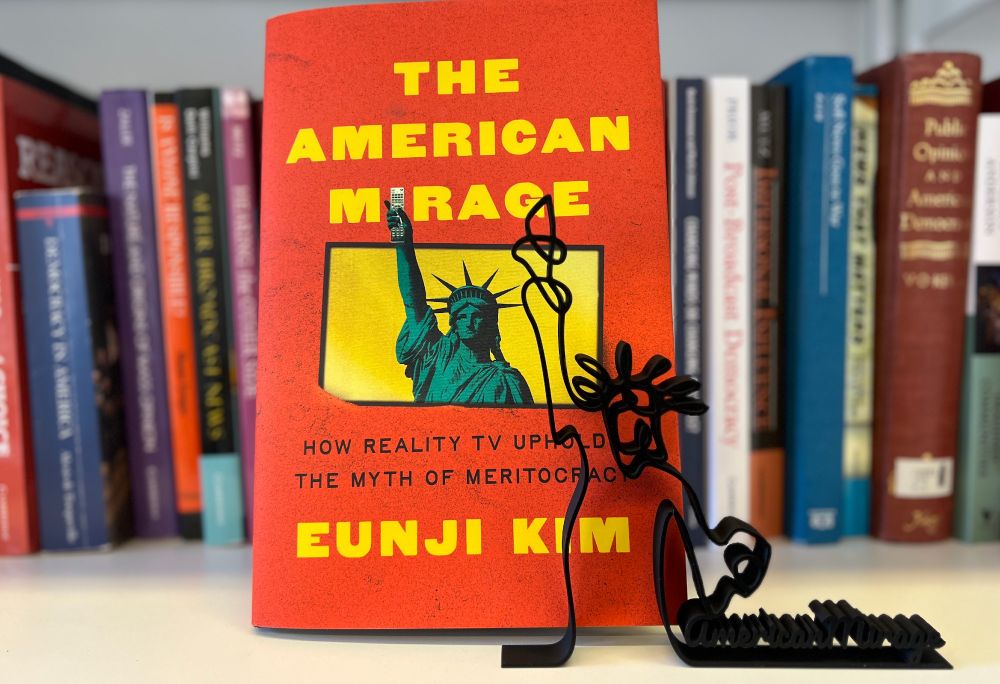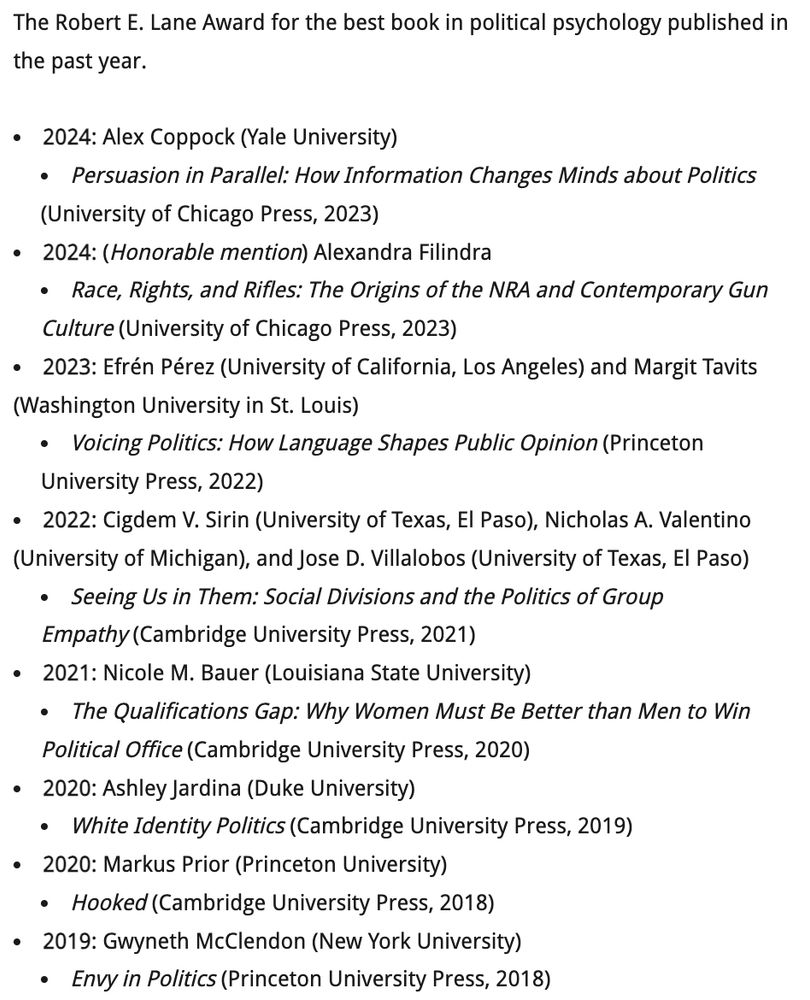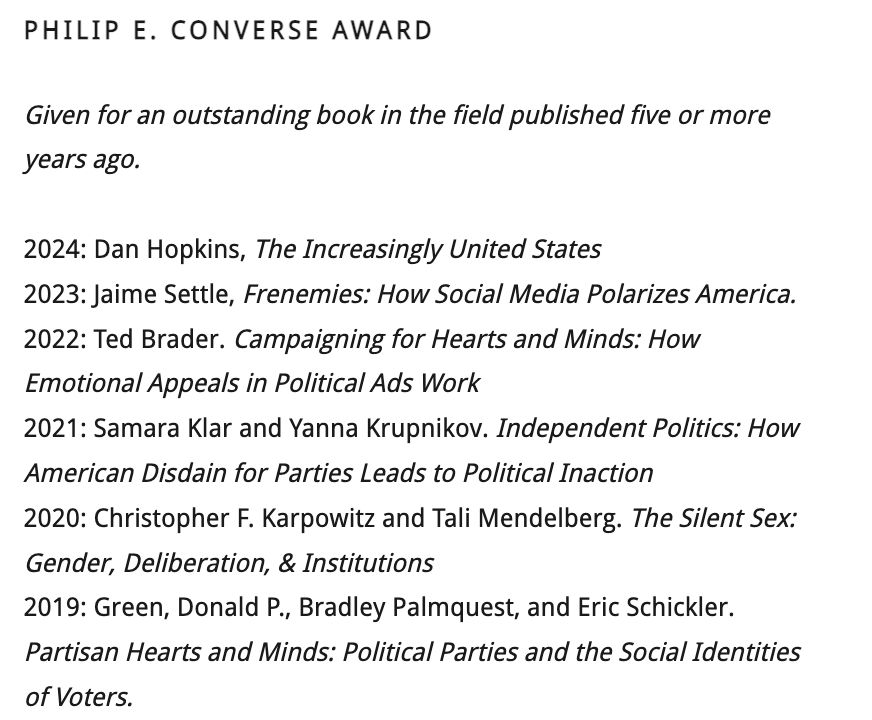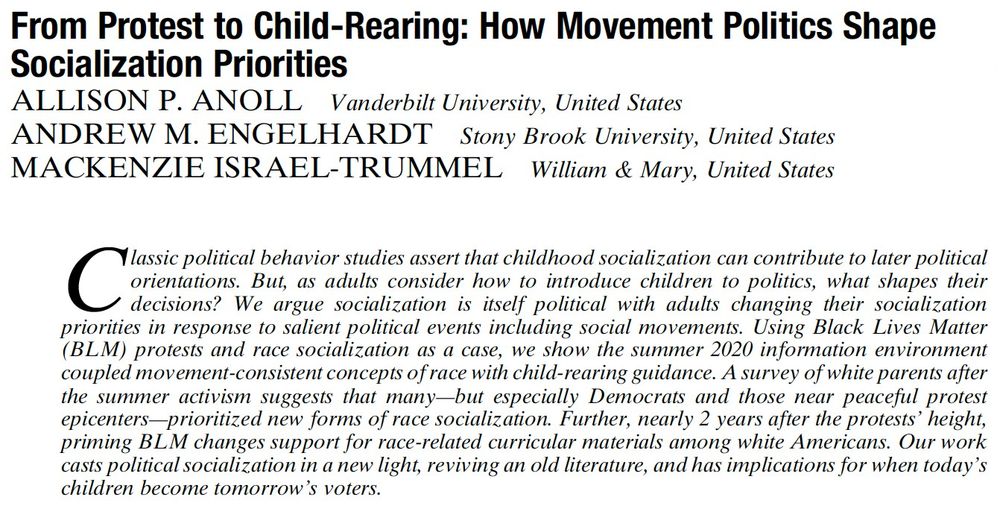Reposted by: Eric Groenendyk, The Editors
Featuring @lilymasonphd.bsky.social, @valentimvicente.bsky.social , @mjcohen.bsky.social, @agtheodoridis.bsky.social, S. Feldman, M. Pickup, L. Stephenson, T. Ollerenshaw, & O. Christley!
www.eventbrite.com/e/2025-polit...
The data and documentation can be downloaded from the ANES website at: electionstudies.org/data-center/...
Reposted by: Eric Groenendyk, Gordon Hodson, Allison Harell
Reposted by: Eric Groenendyk, Roland Imhoff, Flávio Azevedo
The data and documentation can be downloaded from the ANES website at: electionstudies.org/data-center/...
Best,
The ANES Team
by Eunji Kim — Reposted by: Eric Groenendyk, Erika Franklin Fowler, Kevin Coe

Reposted by: Eric Groenendyk
goodauthority.org/news/effecti...
#polisky

Reposted by: Eric Groenendyk

by Adam J. Berinsky — Reposted by: Eric Groenendyk
Reposted by: Eric Groenendyk

Reposted by: Eric Groenendyk, Jean‐François Daoust
Robert Lane Award (with Nichole Bauer and Markus Prior)
connect.apsanet.org/s28/nominati...
Converse Award (with @wzcmarsh.bsky.social, @jfdaoust.bsky.social, @hmridge.bsky.social)
connect.apsanet.org/s32/awards/
pls nominate & share


Reposted by: Eric Groenendyk
www.ft.com/content/bddc...
Thanks everyone who helped with this project, from the bottom of my heart. I am very happy ❤️

Reposted by: Eric Groenendyk, Aleksandra Cichocka, Allen Hicken
connect.apsanet.org/s28/nominati...
Reposted by: Eric Groenendyk
Consider applying!
www.stonybrook.edu/commcms/poli...


Reposted by: Eric Groenendyk
Registration is now OPEN for the 2024 APSA Pre-Conference for Political Psychology. Come join us at Temple University on Wed. Sep. 4, 2024.
Registration: www.eventbrite.com/e/2024-polit...
Poster presentation application: wsu.co1.qualtrics.com/jfe/form/SV_...

Application for Poster presentations: wsu.co1.qualtrics.com/jfe/form/SV_...



Reposted by: Eric Groenendyk
www.cambridge.org/core/journal...

Reposted by: Eric Groenendyk
